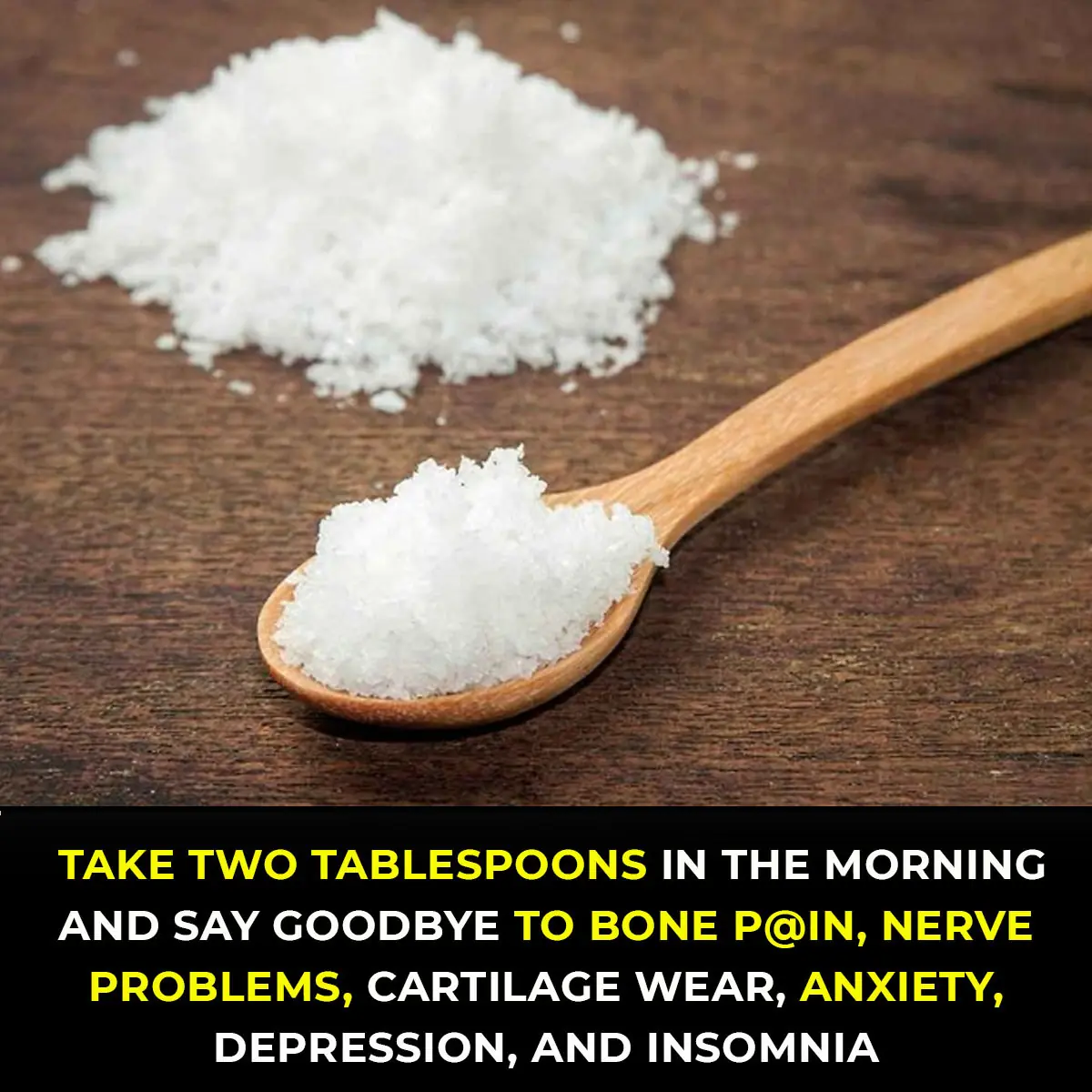
10 Warning Signs Sugar Is Slowly Wrecking Your Body

Sugar may seem sweet, but its impact on the body can be far from beneficial. While natural sugars found in fruits and vegetables are generally safe, added sugars in processed foods, sodas, and snacks pose a hidden health threat. Regular consumption of excess sugar can have severe effects on your body, often without obvious symptoms. Here are ten warning signs that sugar could be gradually harming your health.
1. Persistent Fatigue and Low Energy
A common sign of too much sugar is constant tiredness. Though sugar provides a quick energy boost, it is usually followed by an energy crash. Over time, the cycle of blood sugar spikes and drops can leave you feeling fatigued throughout the day.
2. Weight Gain, Particularly Around the Abdomen
Sugar is full of empty calories and lacks essential nutrients. It stimulates your appetite and reduces feelings of fullness, leading to overeating. High sugar consumption, particularly fructose, is closely associated with the accumulation of belly fat, which is a major risk factor for heart disease and diabetes.
3. Frequent Sugar Cravings
Sugar has addictive properties. It stimulates the brain’s reward system by releasing dopamine, the "feel-good" hormone, which can lead to intense cravings. This creates a cycle of overeating, leading to addiction similar to that caused by certain drugs.
4. Skin Issues and Breakouts
Sugar promotes inflammation in the body and can cause spikes in insulin levels. These hormonal fluctuations can contribute to acne and other skin problems. If you're struggling with unexplained breakouts, sugar may be the hidden cause.
5. Mood Swings and Anxiety
Consuming too much sugar can lead to mood instability, irritability, and anxiety. Rapid fluctuations in blood sugar levels can cause mood swings, and in some cases, sugar consumption has been linked to depression symptoms.
6. Difficulty Sleeping
Excess sugar can negatively affect your sleep quality. It stimulates the nervous system, making it harder for your body to relax. If you’re finding it hard to fall asleep or stay asleep, sugar’s impact on your metabolism and brain activity could be to blame.
7. Weakened Immune Function
Consuming large amounts of sugar can suppress your immune system for hours after eating. This makes it easier for viruses and bacteria to invade, leading to more frequent colds and infections.
8. Brain Fog and Memory Impairment
High sugar consumption has been linked to impaired cognitive function. Over time, it can damage brain cells, affecting memory, focus, and learning. Some studies even suggest that sugar intake may be related to Alzheimer’s disease.
9. Increased Blood Pressure and Cholesterol Levels
Excessive sugar intake contributes to higher blood pressure and increases LDL (bad) cholesterol while decreasing HDL (good) cholesterol. These changes are major risk factors for cardiovascular disease, one of the leading causes of death worldwide.
10. Digestive Disturbances
Sugar can upset the balance of good and bad bacteria in your gut, leading to bloating, gas, and other digestive problems. An imbalanced gut microbiome can also negatively affect your immune system and mental health.
Conclusion
Sugar is ubiquitous in today’s world, especially in fast-paced environments filled with processed foods. Recognizing the early warning signs can help you take action before serious health issues arise. Reducing your sugar intake and focusing on a balanced, whole-food diet is one of the most effective ways to protect your long-term health. Pay attention to your body's signals—doing so can help prevent sugar from silently undermining your well-being.
News in the same category


10 Early Warning Signs Your Blood Sugar Is Way Too High

If Your Legs Cramp at Night You Need to Know This Immediately

Warning Signs Your Body Is Full of Parasites and How to Effectively Eliminate Them Naturally

Warning Signs of a Parasite Infection And How to Eliminate It for Good

What Raw Garlic Can Do for Your Health Is Truly Unbelievable

5 Common Deficiencies That Can Mess With Your Mood, Energy, and Health

Diabetes Tied to Slower Brain Recovery After TBI

Neuropathic Pruritus Has High Comorbidity Burden, Varied Treatment Responses

Unlock Your Body's Healing Potential: The Power of Reflexology for Pain Relief and Wellness

Medicinal Health Benefits of Turmeric, Curcumin and Turmeric Tea Based on Science

How to Use Tea Bags to Fight Acne, Cold Sores, Warts, Puffy Eyes, Bruises and More

Healing Power And Important Safety Tips Of Castor Leaves

How to Treat H. Pylori (Helicobacter Pylori) Naturally Without Antibiotics

12 Warning Signs Your Blood Sugar Might Be Too Low

Be Careful If You’re Farting More Than 25 Times a Day—It Might Be a Sign Your Body is Trying to Warn You

10 Cancer Warning Signs Women Often Overlook

Breakthrough Male Contraceptive Injection Offers Alternative to Condoms and Vasectomy

This One Superfood Could Tackle Major Health Issues—Here’s What You Need To Know
News Post

You Can Adopt Puppies That Were ‘Too Friendly’ to Become Police Dogs

A Nigerian Scientist Developed a High-Tech Cancer-Detecting Goggles That Help Surgeons Spot Cancer Cells More Accurately.

Final straw that led to billionaire CEO's desperate escape from Japan inside 3ft box

Mutant deer with horrifying tumor-like bubbles showing signs of widespread disease spotted in US states

'Frankenstein' creature that hasn't had s3x in 80,000,000 years in almost completely indestructible

Scientists discover ultra-massive 'blob' in space with a mass of 36,000,000,000 suns

When a Washing Machine Shows 7kg, 8kg, or 10kg, Is That the Weight of Dry or Wet Clothes? The Real Meaning Behind These Numbers Is Something That Few People Know

Place a Bowl of Salt in the Fridge: A Small Trick, But So Effective — I Regret Not Knowing It for 30 Years

If Your White Walls Are Dirty, Don’t Clean Them with Water — Use This Trick for a Few Minutes, and Your Wall Will Be as Clean as New

Bubble Wrap Has 4 Uses 'As Valuable as Gold' — But Many People Don’t Know and Hastily Throw It Away

3 Ways to Prevent Snakes from Entering Your House: Protect Your Family

5 Household Devices That Consume More Electricity Than an Air Conditioner: Unplug Them to Avoid Skyrocketing Bills

How a Common Kitchen Powder Can Help Your Plants Thrive and Bloom

How to Effectively Clean Black Mold from Your Refrigerator Gasket in Just 5 Minutes

10 Early Warning Signs Your Blood Sugar Is Way Too High

If Your Legs Cramp at Night You Need to Know This Immediately

Warning Signs Your Body Is Full of Parasites and How to Effectively Eliminate Them Naturally

Warning Signs of a Parasite Infection And How to Eliminate It for Good

What Raw Garlic Can Do for Your Health Is Truly Unbelievable
